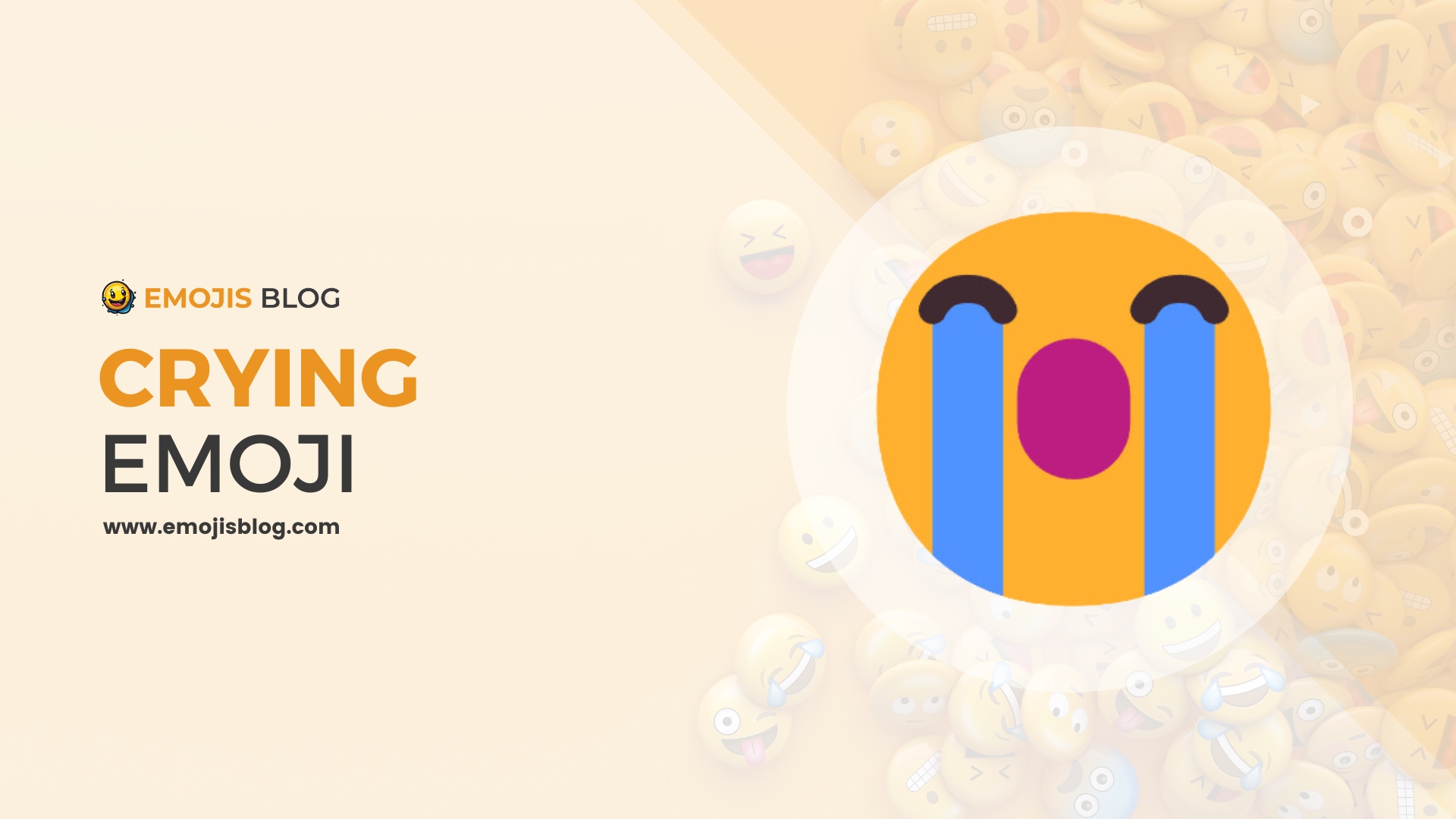What Does The Loudly Crying Face Emoji Mean 😭
😭
What’s Loudly Crying Face Emoji?
The emoji 😭, known as the “Loudly Crying Face,” is a digital symbol used to express intense emotions, primarily sadness or overwhelming joy. Its depiction typically includes a yellow face, tightly closed eyes, and a large, open mouth, with two streams of tears pouring down its cheeks. This emoji is versatile in its usage, often employed to convey deep sorrow, empathy, or a sense of being moved to tears, but it can also be used hyperbolically to represent laughter or joy in a humorous or exaggerated context.
Technical Information
| Attribute | Details |
|---|---|
| Official Name | Loudly Crying Face |
| Unicode Character | U+1F62D |
| Introduced in | Unicode 6.0 (2010) |
| Emoji Version | Emoji 1.0 (2015) |
| Category | Smileys & Emotion |
| Subcategory | Face Concerned |
| Keywords | crying, face, sad, tear, loudly |
| Codepoints | U+1F62D |
| Shortcode | :sob: (in platforms like Slack and GitHub) |
| CSS Code | \1F62D |
| Variations | None (standard yellow face across platforms) |
| Platforms | Widely supported across major platforms (Apple, Google, Microsoft, Samsung, WhatsApp, Twitter, Facebook, etc.) |
| Typical Color | Yellow face with blue tears |
| Description | A yellow face with an open mouth, wailing and streams of heavy tears flowing from closed eyes. |
Understanding the Crying Emoji: A Deep Dive into Digital Expression 😭
In the digital age, where text-based communication often lacks the nuances of face-to-face interaction, emojis have emerged as a vital tool in conveying emotions. Among these, the crying emoji 😭, officially known as the “Loudly Crying Face,” has gained significant popularity. This article explores the various interpretations and uses of the crying emoji in digital communication.
The Origin and Evolution of the Crying Emoji
Historical Background
The crying emoji first made its appearance in the early 2010s with the rise of emoji keyboards on smartphones. Originating from Japanese mobile phone culture, it was included in Unicode 6.0 in 2010 and has since become a staple in digital communication across various platforms.
Evolution in Design
Over the years, the design of the crying emoji has seen subtle changes across different platforms. While the basic elements remain consistent – a face with closed eyes, furrowed brows, and tears streaming down – the colour, shape, and size of the tears can vary.
Interpretations of the Crying Emoji
Expressing Sadness and Despair
The most straightforward interpretation of the crying emoji is to convey sadness, grief, or despair. It’s often used in personal messages to express sympathy or in reaction to upsetting news.
Amplifying Emotions
In many instances, the crying emoji is used to exaggerate feelings. It can amplify messages of joy, laughter, or even sarcasm, going beyond its literal meaning of sadness.
Cultural Variations in Usage
The interpretation of the crying emoji can vary culturally. In some contexts, it’s used more freely to express a range of emotions, while in others, it’s reserved for more serious expressions of sadness.
The Crying Emoji in Social Media and Digital Communication
Usage in Text Messages and Emails
In informal digital communication, such as text messages and emails among friends, a crying emoji is a versatile tool for expressing emotions quickly and effectively.
Impact on Social Media
On social media platforms, the crying emoji is often used in comments and posts to convey empathy or to react to content in a way that words alone might not capture.
Psychological Perspective
Emotional Expression in the Digital Age
Psychologists have noted that emojis like the crying face play a crucial role in adding emotional depth to digital communication. They help in conveying tone and intent, which are often lost in text-based communication.
The Emoji as a Universal Language
Emojis, including the crying face, are becoming a universal language, transcending linguistic barriers. They offer a way to express emotions that might be difficult to articulate in words.
Conclusion
The crying emoji 😭, while seemingly simple, is a complex and multifaceted tool in digital communication. It embodies the evolving nature of how we express emotions in the digital era, transcending cultural and linguistic boundaries. Whether used to convey genuine sadness or to amplify other emotions, this emoji has become an integral part of our digital vocabulary, adding depth and nuance to our online interactions.

